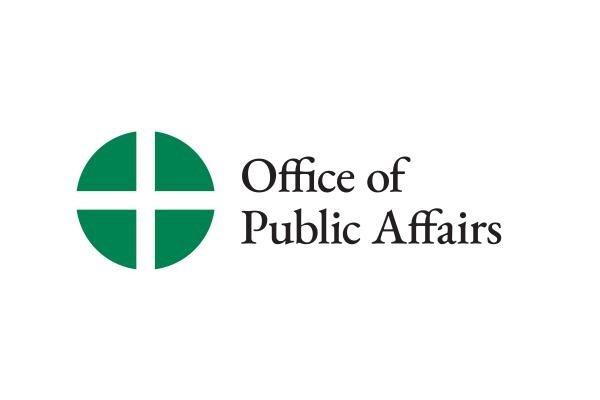Work To Reduce Nuclear Arms, Maintain Middle East Stability, Bishops Urge Secretary Of State Clinton In Dealing With Iran
WASHINGTON—The U.S. bishops urged U.S. Secretary of State HillaryRodham Clinton to work to reduce nuclear arms and maintain security in the Middle East in a March 2letter about Iran from Bishop Richard E. Pates of Des Moines.
WASHINGTON—The U.S. bishops urged U.S. Secretary of State HillaryRodham Clinton to work to reduce nuclear arms and maintain security in the Middle East in a March 2letter about Iran from Bishop Richard E. Pates of Des Moines. Bishop Pateschairs the Committee on International Justice and Peace of the United States Conferenceof Catholic bishops (USCCB).
Thefull letter is attached at www.usccb.org/issues-and-action/human-life-and-dignity/global-issues/middle-east/iran/upload/Letter-to-Secretary-Clinton-on-Iran-2012-03-02.pdf.
BishopPates acknowledged “the difficult situation involving our nation, theinternational community and Iran” including Iran’s refusal to acknowledge itsobligations under the Nuclear Non-Proliferation Treaty to open its facilitiesfor inspection.
“Their refusal exacerbatessuspicions that Iran is developing its nuclear capability to produce weaponsrather than energy,” he said. BishopPates noted that the Conference of Bishops has always expressed “strongobjection to Iran’s acquiring nuclear weapons.”
Hevoiced concern over what he called “an alarming escalation in rhetoric andtensions,” including Iran’s threat to close the Strait of Hormuz to commercialtraffic and speculation on the possible use of force against Iran, including anIsraeli pre-emptive strike on Iranian nuclear facilities.
“TheBishops’ Conference urges the U.S. Government to continue to explore allavailable options to resolve the conflict with Iran through diplomatic, ratherthan military, means,” Bishop Pates said.
“Before military options areconsidered, all alternatives, including effective and targeted sanctions andincentives for Iran to engage in diplomacy and cooperate with the InternationalAtomic Energy Agency (IAEA), need to be exhausted,” he added.
“In Catholic teaching, the use offorce must always be a last resort. Iran’s bellicose statements, its failure tobe transparent about its nuclear program and its possible acquisition ofnuclear weapons are serious matters, but in themselves they do not justifymilitary action,” Bishop Pates said.
“Discussingor promoting military options at this time is unwise and may becounterproductive. Actual or threatened military strikes are likely tostrengthen the regime in power in Iran and would further marginalize those inIran who want to abide by international norms. And, as the experience in Iraq teaches, the use of force can have manyunintended consequences,” he said.
“Iran is an example of thesignificant threat posed to global security by a proliferation of nuclearweapons. The specific situation of Iran should be viewed within the widersearch for a just and peaceful world built on nuclear nonproliferation anddisarmament. A morally responsible nonproliferation strategy must be tied to aclear strategy for reducing and ultimately ending the reliance on nuclearweapons by any country. The Nuclear Nonproliferation Treaty itself tiesnonproliferation to eventual nuclear disarmament.”
-
Keywords: Bishop Richard pates, United States Conference ofCatholic Bishops, USCCB , Hillary Clinton, Nuclear Nonproliferation Treaty,Iran, Middle East, International Atomic Energy Agency
# # ## #
MEDIA CONTACT ONLY:Sr. Mary Ann WalshO: 202-541-3200M: 301-325-7935Email
